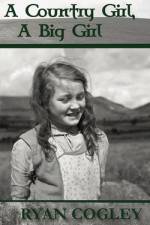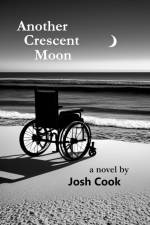von Ryan N Cogley
20,00 €
A Country Girl, A Big Girl, tells the tale of eleven-year-old Kitty Murphy and her countryside life in 1950's Ireland. She lives with her parents, daddy, John and pregnant mammy, Margaret, two older brothers, Paddy and Mick, and her two sisters, Peggy and Marie. Kitty has another sister, Kathleen, but Kitty does not know where Kathleen is. Whenever anyone asks of Kathleen's whereabouts, Kitty must say that Kathleen is "away." The story begins at the end of the summer in 1954. The Murphy family are getting ready for Sunday mass and there is excitement as the parish is expecting a new priest, the youthful Father Kelly. The next day, Peggy leaves the farm to attend the Domestic Economy School. Kitty is nervous after Peggy's departure. With Peggy now gone, Kitty is the eldest daughter, the 'big girl' in the home.Kitty has a new teacher this term - the wicked Ms. O'Doherty. Ms. O'Doherty isn't afraid to punish her pupils for their misbehaviour. In school, Kitty fears Ms. O'Doherty's ruler and Mr. O'Sullivan, the principal's cane; at home, she fears her mammy's wooden spoon and her daddy's belt. She finds it difficult to step into her role as the 'big girl.'In November, Kitty's innocence suffers a fatal blow. After the family head into town to sell butter and eggs, they find their sheepdog, Kim sick at home. Kitty's brothers speak of rabies, dead rabbits and myxomatosis but it turns out that Kim is pregnant. Kim dies giving birth. Kitty is the one who finds her and discovers the puppies. But Kitty's daddy drowns the puppies. Meanwhile, Kitty's daddy grows sicker. He complains of a lump in his stomach which turns out to be cancer. As his health deteriorates, the baby in Kitty's mammy's belly grows. On Christmas Day, the baby comes but he does not survive the birth. The baby is buried in a cillÃn and Kitty's mammy plunges into a depression.In spring, Kitty finds out, from Peggy and Paddy, that Kathleen is in a Mother and Baby Home. Kitty finds it hard to fathom and goes on to suffer nightmares where nuns are cruel to her.On Easter Sunday, there is an accident on the farm. Paddy and Mick have taken over the farm because their daddy is too sick. Kitty has taken over the domestic duties because her mammy is still in and out of bed. Mr. Byrne - their neighbour - is kicked by a bull and dies as a result. Kitty finds out that deaths occur in threes. The day Mr. Byrne dies is the day she starts counting. The number eventually evolves to two out of three when Mrs. O'Reilly dies.At the end of the story, the number comes to three out of three. Kitty finds her daddy's body asleep in his armchair. The wake and funeral go by in a blur and the story finishes with Kitty readying herself for her first summer as a big girl.





